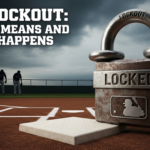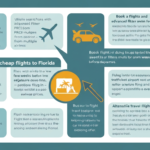https://finanzasdomesticas.com/el-paro-en-la-eurozona” is a term that talks about the issue of unemployment in the Eurozone. This is a big problem because many people in Europe are looking for jobs but can’t find them. The Eurozone includes many countries that use the euro, and when there are not enough jobs, it affects everyone.
Unemployment, or “el-paro-en-la-eurozona,” can make life hard for families. Without a job, it’s tough to pay for things like food, rent, and other needs. This is why understanding unemployment in the Eurozone is important for everyone living in these countries.
What Is “El-Paro-En-La-Eurozona”
“El-paro-en-la-eurozona” means unemployment in the Eurozone, a group of European countries using the euro as their money. These countries work together, but sometimes, many people lose their jobs. This is what we call “el-paro-en-la-eurozona.”
Many people in the Eurozone want to work, but there are not enough jobs. Because of this, “el-paro-en-la-eurozona” becomes a problem. It’s important to understand this term so we can talk about how to help people find jobs again.
When someone talks about “el-paro-en-la-eurozona,” they are talking about the struggles of finding a job in Europe. This affects both young people and adults, and it’s something that many countries are trying to fix.
Why “El-Paro-En-La-Eurozona” Is a Big Problem
The problem of “el-paro-en-la-eurozona” is serious because it affects many people. When people can’t find work, it becomes hard to pay for their needs. Families may struggle to buy food, pay rent, or afford other things they need every day.
Having many people without jobs also hurts the country’s economy. When people don’t have money to spend, businesses may suffer too. This is why “el-paro-en-la-eurozona” is such a big issue for countries in the Eurozone.
Not being able to find a job can make people feel sad and worried. This is why governments and organizations are trying hard to solve “el-paro-en-la-eurozona” by creating more jobs and helping people gain skills.
Countries Most Affected by “El-Paro-En-La-Eurozona”
Some countries in the Eurozone are more affected by “el-paro-en-la-eurozona” than others. Spain and Greece, for example, have faced high unemployment rates. This means that many people in these countries are without jobs.
In these countries, young people find it very hard to get their first job. “El-paro-en-la-eurozona” hits them the hardest, making it difficult for them to start their careers. Because of this, many young people may decide to move to other countries where jobs are more available.
Although the situation is tough, countries like Germany have lower unemployment rates. However, even in these countries, “el-paro-en-la-eurozona” can still cause problems, especially during economic downturns.
How “El-Paro-En-La-Eurozona” Affects Families
Families are greatly affected by “el-paro-en-la-eurozona.” When parents lose their jobs, it can be hard to take care of their children. Without a steady income, families might struggle to buy food, clothes, and other important things.
Children in families affected by “el-paro-en-la-eurozona” might not have access to the same opportunities as others. For example, they may have to miss out on extracurricular activities or not be able to afford new school supplies. This can make life harder for them.
The stress of “el-paro-en-la-eurozona” can also cause tension at home. Parents may worry about paying bills or keeping their home, leading to arguments and worries. This is why finding solutions to unemployment is important for the well-being of families.
Understanding the Causes of “El-Paro-En-La-Eurozona”
There are many reasons for “el-paro-en-la-eurozona.” One of the biggest causes is economic recession, which means the economy is doing poorly. When this happens, businesses might close or cut back on workers, leading to unemployment.
Sometimes, new technology can cause “el-paro-en-la-eurozona” too. When machines and computers start doing jobs that people used to do, fewer workers are needed. This can be tough for people who lose their jobs and need to learn new skills.
Changes in global trade can also lead to “el-paro-en-la-eurozona.” If companies move their factories to other countries where labor is cheaper, workers in the Eurozone might lose their jobs. Understanding these causes can help in finding ways to reduce unemployment.
Can “El-Paro-En-La-Eurozona” Be Solved?
Solving “el-paro-en-la-eurozona” is not easy, but there are ways to make things better. Governments can create job programs that help people find work. These programs might offer training in new skills or help people start their own businesses.
Another solution is to improve education. When people learn new skills, they can find better jobs. This can reduce “el-paro-en-la-eurozona” because more people will be ready to work in different industries.
Companies can also play a role in solving “el-paro-en-la-eurozona.” By investing in their workers and providing job opportunities, businesses can help reduce unemployment. Working together, governments, schools, and companies can find ways to solve this problem.

Government Responses to “El-Paro-En-La-Eurozona”
Governments in the Eurozone are working hard to fight “el-paro-en-la-eurozona.” They create policies to support job creation and help people find work. Some governments offer tax breaks to businesses that hire more workers.
Another response to “el-paro-en-la-eurozona” is providing unemployment benefits. These benefits help people who have lost their jobs by giving them money to live on while they search for new work. This safety net is important for people affected by unemployment.
In some countries, governments focus on education and training programs. By helping people learn new skills, they aim to reduce “el-paro-en-la-eurozona.” These programs are especially important for young people who need help finding their first jobs.
The Role of Education in Fighting “El-Paro-En-La-Eurozona”
Education is key to fighting “el-paro-en-la-eurozona.” When people have the right skills, they can find good jobs. Schools and training centers can help by teaching students what they need to know to work in today’s world.
Learning new skills is important for both young people and adults. By offering courses in technology, healthcare, and other fields, education can reduce “el-paro-en-la-eurozona” by making people more employable. This is why investing in education is crucial.
In addition to skills, education helps people think critically and solve problems. These abilities are valuable in any job and can help reduce “el-paro-en-la-eurozona.” When people are educated, they can adapt to changes in the job market and find new opportunities.
How “El-Paro-En-La-Eurozona” Affects the Eurozone Economy
The Eurozone economy is strongly affected by “el-paro-en-la-eurozona.” When many people are out of work, they have less money to spend. This can lead to fewer sales for businesses, which might then cut back on workers, creating a cycle of unemployment.
Lower spending due to “el-paro-en-la-eurozona” also means less tax money for governments. With less revenue, it becomes harder for governments to invest in public services, like schools and healthcare. This makes the economy weaker overall.
Additionally, “el-paro-en-la-eurozona” can lead to social unrest. When people are unhappy with their job prospects, they may protest or demand change. This can create instability, which is bad for the economy. Solving unemployment is important for a strong Eurozone economy.
Success Stories: Overcoming “El-Paro-En-La-Eurozona”
There are success stories of people and countries overcoming “el-paro-en-la-eurozona.” Some countries have created programs to help people find jobs and start new careers. For example, Germany’s apprenticeship programs have helped many young people gain skills and find work.
Individuals have also succeeded in overcoming “https://finanzasdomesticas.com/el-paro-en-la-eurozona.” Some people have used the opportunity to start their own businesses. With hard work and creativity, they have created jobs not only for themselves but for others too.
Communities have come together to fight “https://finanzasdomesticas.com/el-paro-en-la-eurozona” as well. By supporting local businesses and creating job opportunities, they have shown that it’s possible to reduce unemployment and build a stronger future.
The Future of “El-Paro-En-La-Eurozona” in Europe
The future of “el-paro-en-la-eurozona” is uncertain, but there is hope. As technology changes, new jobs will be created. It’s important for people to keep learning and adapting to these changes to stay employable.
Governments in the Eurozone are also working on long-term plans to reduce “https://finanzasdomesticas.com/el-paro-en-la-eurozona.” By focusing on innovation and education, they aim to create a stronger economy with more job opportunities.
While challenges remain, the Eurozone has the potential to overcome “https://finanzasdomesticas.com/el-paro-en-la-eurozona.” By working together, countries, businesses, and individuals can build a future with more jobs and less unemployment.
Conclusion
Understanding “el-paro-en-la-eurozona” helps us see why unemployment in Europe is such a big deal. When people don’t have jobs, it makes life harder for families and can hurt the whole economy. But there are many ways to help fix this problem, like better education and job programs.
By working together and supporting each other, we can make a difference. Whether it’s through learning new skills or helping local businesses, everyone has a part to play. Let’s stay hopeful and keep trying to reduce “https://finanzasdomesticas.com/el-paro-en-la-eurozona” to build a better future for everyone.




